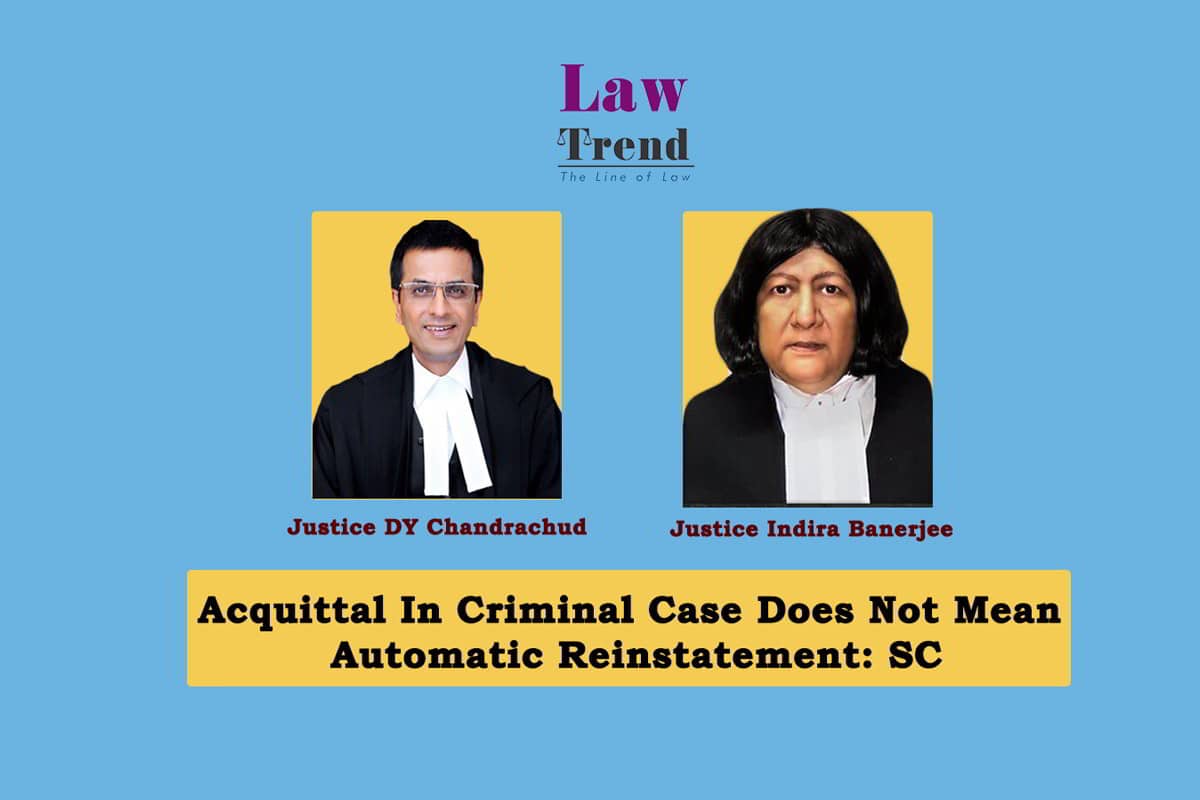While pronouncing their judgement in an appeal, the Supreme Court held that a dismissal order could be passed even if an official is acquitted of criminal charges. Brief Facts of the Case:- The respondent had joined the Rajasthan Police service as a constable in the year 1992. In the same year, an FIR under Sections
To Read More Please Subscribe to VIP Membership for Unlimited Access to All the Articles, Download Available Copies of Judgments/Order, Acess to Central/State Bare Acts, Advertisement Free Content, Access to More than 4000 Legal Drafts( Readymade Editable Formats of Suits, Petitions, Writs, Legal Notices, Divorce Petitions, 138 Notices, Bail Applications etc.) in Hindi and English.







